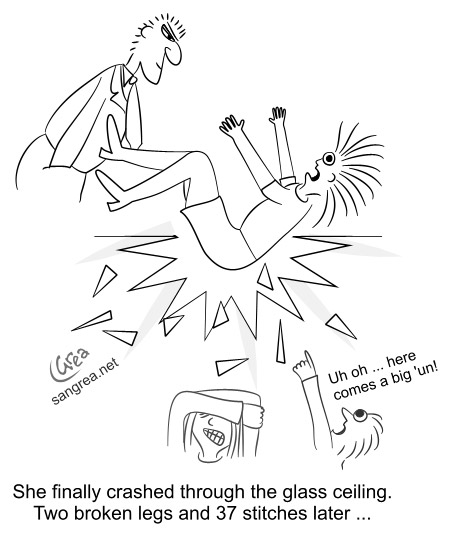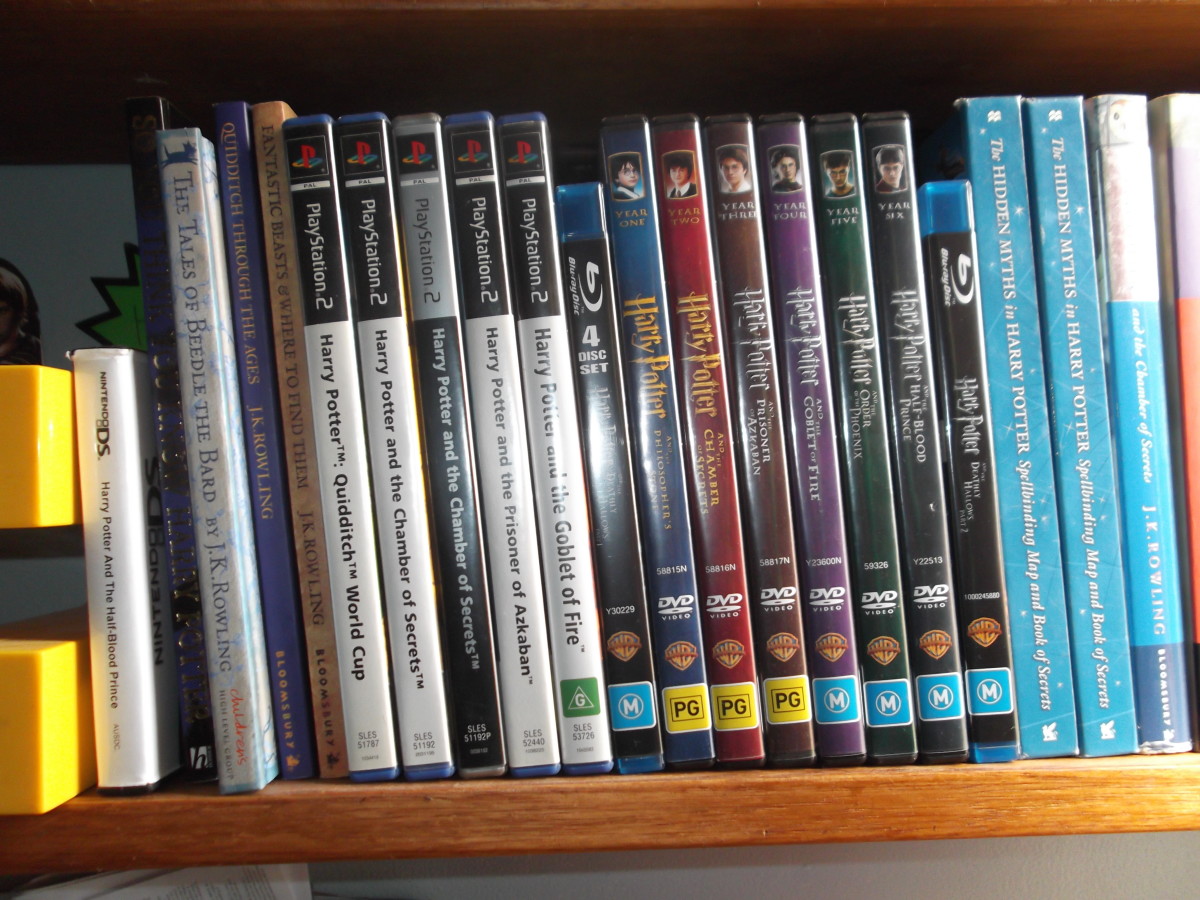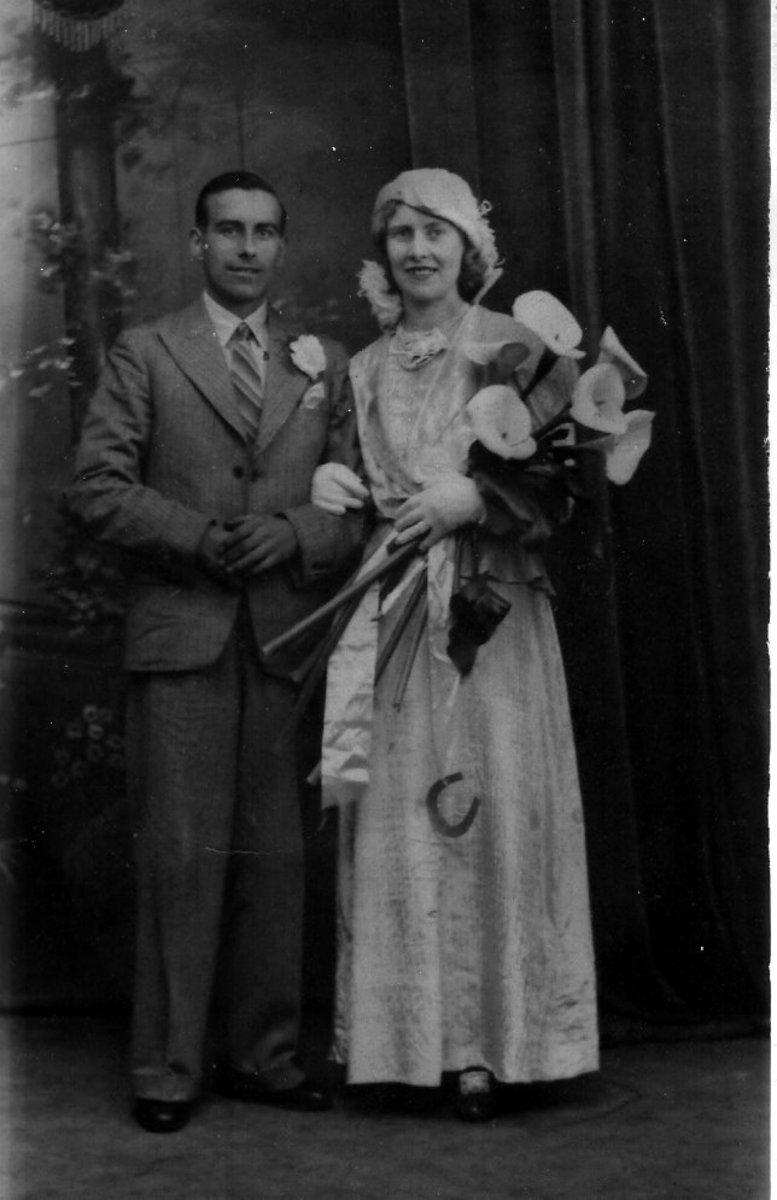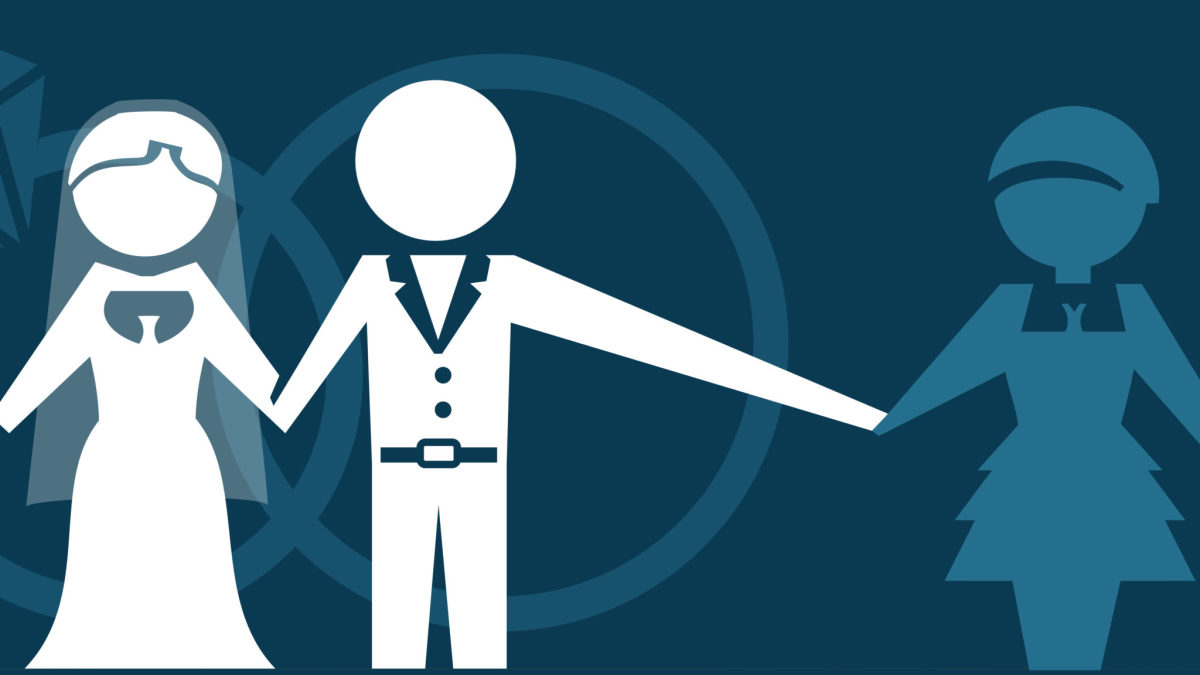Boys Are Doctors. Girls Are Nurses. Glad You're a Girl?
The day I found out being a girl meant that I couldn't do things that boys could do:
I was six when I read "I’m Glad I’m a Boy! I’m Glad I’m a Girl!" I was devastated to find out that, because I was a girl, I couldn’t be a doctor, but I could be a nurse. I couldn’t fly a plane, but I could be a stewardess. I couldn’t be a policeman, but I could be a meter maid. I wondered how often my dad wished that I was a boy.
I checked the book out from the school library completely by chance. I had already read the available books from my favorite authors, and the ones I hadn't read were checked out. I went into a section of the library I had never visited before, ran my hands along a row of books, stopped and pulled one out.
Silent reading always followed our weekly library visit. For 15 minutes, the class read their new books. That day, silent reading became silent crying for me. I had never seen a girl doctor. I had never seen a girl policeman. This book was true.
As soon as I came home my mother knew something was wrong. It took me until after dinner to finally show her the book, my head hanging and tears falling down my cheeks.
My mother explained to me that the book was from the Dark Ages, and the author was even older than the book. Because I was under the impression that books didn’t lie, my mother had a lot of convincing to do.
We talked about things--things that I was able to do better than the boys in my class:
I was the fastest runner in my class out of everyone, but, I told my mom, they pick boy-girl, boy-girl for teams, and the boys hate to pick a girl first. All the captains for teams are boys. Yes, I was always the first girl picked, but it didn't really matter if they didn't want to pick a girl first;
I was the best reader in class. I was the only student in the highest category of the book catalog in the classroom;
I was tied for the best speller in my class, but the other student was a boy.
Mr. Whitney Darrow, you destroyed a six-year-old girl with your awful book.

Is Censorship Ever Appropriate?
My mother did not believe in censorship, especially when it came to books. Because I loved to read, my mother told me about the book burning by the Nazis, and I remember wondering how many books I would never be able to read because they had been burned. I was also given free realm to read any book I wanted to read regardless of its content. But, my mother made an exception to her rule with this particular book because of the devastation I felt.
She kept me out of school until the school agreed to remove the book from the library. She actually had some difficulty in achieving this; the school believed it would be book-banning. My mother attended a PTA meeting in an attempt to recruit others to join her protest. Though it took several weeks, she was successful. If the internet had been available, perhaps it wouldn't have taken several weeks to accomplish this task.
How A Book Written By Misogynist Made It To The Children's Section Of A Library
The book was published in 1970 (not the Dark Ages). I checked it out from the elementary school library in the early ‘80s (not the Dark Ages), and the book remained on library shelves throughout the country as late as 1999 (definitely not the Dark Ages). It contained colorful illustrations of a young boy and a young girl, and the captions below it read what boys do and what girls do: boys fix things, girls need things fixed; boys invent things, girls use what boys invent.
In book reviews it is referred to as “warmly humorous”. A review from Books for Children indicates that it helps children discover their appropriate sex role. Though the book is no longer available at Amazon, one person stresses that it is “humorous satire”. I wonder if that person realizes it was available for me to read at my school library at six years old, and if a six year old should be expected to understand humorous satire at the expense of her gender?
Whether it’s satire or not, I wanted to find out whom in their right mind would participate in promoting a book that was clearly sexist under the guise of a children’s book. I also became curious about the author.
Whitney Darrow, the author, was born in 1909 (could be considered the Dark Ages). He was a satire cartoonist for the New Yorker until 1982. His obituary includes mention of a 1950's cartoon depicting a man attending a New Year’s Eve Party embracing a curvaceous, young woman; the man’s wife enters the party, and upon seeing her he yells out, “Good Heavens, Emma! I thought this was you.”
Many of his cartoons and drawings depict naked women with large breasts and well-rounded rear ends, usually being gawked at by men and young boys. You can view some of his drawings by going to Google Images and entering in the search box “Whitney Darrow”.
The obituary also mentions that Darrow wrote children’s books, but doesn’t mention which ones. I would have to believe that "I’m Glad I’m a Boy! I’m Glad I’m a Girl!" is one of those children’s books, because the publisher, Windmill Books, is a company that is still in existence today; its intended audience is children.
While I am all for freedom of expression, am an avid supporter of The First Amendment and believe in free speech for all--to include the belief that Darrow's cartoons, drawings and sexist humor should not be censored within the media, I have concluded that this "children's book" had every intention to undermine a new beginning and new opportunities for women, which was a hard-fought battle, one which continues today, still.
The book was published shortly after the women’s liberation movement. In 1964, the Civil Rights Act was introduced in which an amendment was included that prohibited sex discrimination in employment; however, it had been decided that classifying employment opportunities by separating women applicants and men applicants was acceptable. This is one of the reasons the National Organization for Women was established in 1966.
Because of the timing of the book’s release, it should be concluded tht the book was an attempt by the author (perhaps the publisher as well) to preserve a woman's "rightful place".
Furthermore, it would also make me question any librarian's decision to purchase it for the children's library section. Perhaps they held the same views as the author and found that it was an easy, unnoticeable way to keep, what they believed to be, their views into a new generation’s evolving mindset.
All in all, I find it quite amazing that a misogynistic cartoonist and author was successful at meandering his book into the hands of children under the guise of calling it a children's book in an attempt to prevent young girls from gaining equality and to make sure young boys knew that girls shouldn't gain equality.
At six years old, this book shaped me into the woman I would become.
Throughout my life, I’ve often thought of this book and have discussed this book with my husband, most recently after Hillary Clinton’s concession speech in 2008—explaining to him that the book was the reason why I was sobbing hysterically, even though I voted for Barack Obama in the primary.
I also remember sitting on the living room floor the evening of the presidential election in 1984. My homework assignment was to assign the appropriate colors, red or blue, to each state that had voted Democrat or Republican. I sat in front of that television set holding that blue crayon so tightly in my hand, hoping I would be able to color in at least one state that voted for "the girl" (Geraldine Ferraro) before it was my bedtime. I thought of that book as I watched each state turn red, and tears filled my eyes.
I was about 14 years old when I read a newspaper article about a judge in New York who had determined a man was not guilty of raping a woman...she wasn't wearing a bra.
At 15, I was sexually harassed by my manager at my place of employment at at grocery store. My (male) union rep poo-poo'd my complaint condescendingly.
Then again at 18 by the best car salesman who left a note on my car indicating he wondered what I looked like in a g-string. I was a mere service department cashier, and his job was obviously much more important than mine pertaining to the company's profits.
This continued...at 23 by a doctor who constantly brushed his arm against my chest, and again at 25 by the next physician I worked for.
I could go on to present day. And I always think about this book when it happens.
But this book shaped me into the woman I am today. I am outspoken. I became an activist for several causes. I have never missed an opportunity to cast my vote at the ballot box. I am able to back up my views and opinions based on facts, because I am well read.
So, dearly-departed Whitney Darrow, while I will always support your rights and freedom of expression, your book should never have made it to the children's section of the library. You were undermining the Civil Right's Act, quite brilliantly, I'll give you that. But thanks for that book, Whitney, because you played a role in shaping me into the feminist that I am, the political views I hold, and what I will teach my child about feminism and the importance of equality for all.
Links
- http://www.nytimes.com/1999/08/12/arts/whitney-darrow-jr-89-gentle-satirist-of-modern-life-dies.html
Whitney Darrow's obituary. - http://www.google.com/imghp?hl=en
Google Images.





